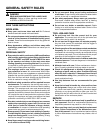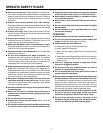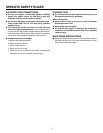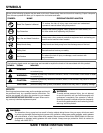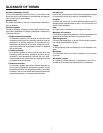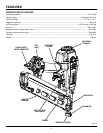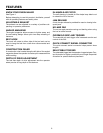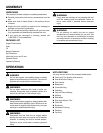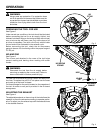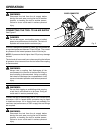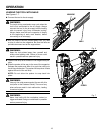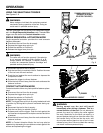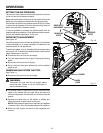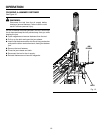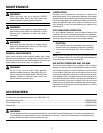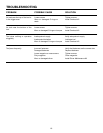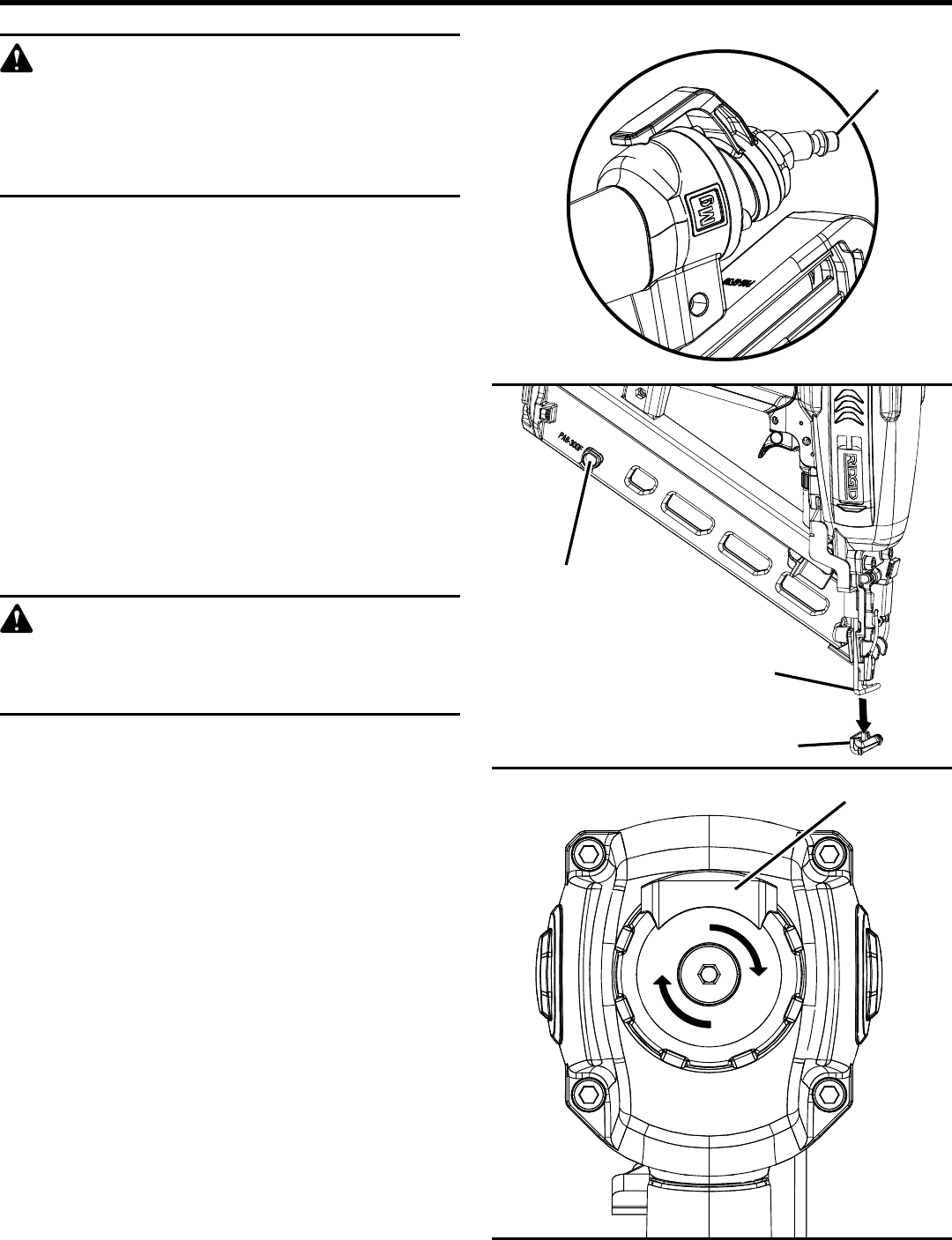
10
11
Fig. 2
OPERATION
WARNING:
Always wear eye protection. Eye protection does
not fit all operators in the same way. Make sure the
eye protection chosen has side shields or provides
protection from flying debris both from the front
and sides.
PREPARING THE TOOL FOR USE
See Figure 2.
Under normal use conditions, the tool should be lubricated
before connecting the tool to an air supply. Add air tool
lubricant into the air fitting on the tool once daily with minimal
use, or twice a day with heavy use. Only a few drops of oil
at a time is necessary. Too much oil will only collect inside
the tool and will be noticeable in the exhaust cycle.
Before connecting the tool, check the air compressor
gauge to be sure it is functioning within the proper range of
70-120 psi.
NO-MAR PAD
See Figure 3.
The no-mar pad attached to the nose of the tool helps
prevent marring and denting when working with softer
woods.
WARNING:
Disconnect the tool from the air supply before
removing or replacing the no-mar pad. Failure to
do so could result in serious personal injury.
The pad can be removed by pulling it down and away from
the nose. To replace the pad, fit it into place over the nose
and push up at the back to reseat.
On-board storage for the pad is located on the magazine of
the tool. An extra no-mar pad is provided in the on-board
storage area.
ADJUSTING THE EXHAUST
See Figure 4.
The adjustable exhaust on the end cap of the tool allows the
operator to direct the exhaust according to operator prefer-
ence. To adjust, turn the exhaust cap until the exhaust blows
in the desired direction.
Fig. 3
Fig. 4
AIR
FITTING
NOSE
NO-MAR
PAD
ADJUSTABLE
EXHAUST
NO-MAR PAD
STORAGE



